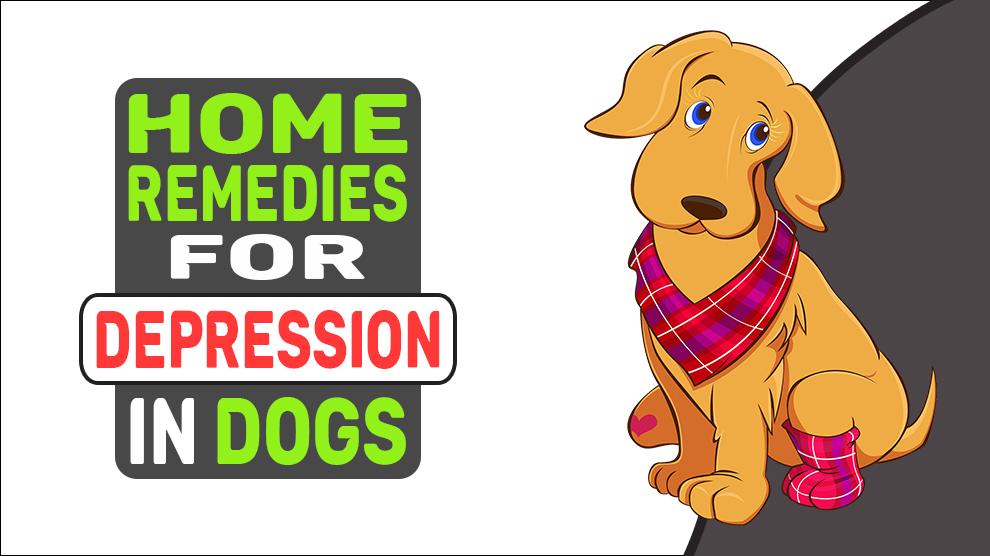Possible Diseases For Depression
- Miscarriage - Read More -> Miscarriage In Dogs - Symptoms & Treatments
- Bilious Vomiting Syndrome - Read More -> Bilious Vomiting Syndrome In Dogs - Symptoms & Treatment
- Babesiosis - Read More -> Babesiosis In Dogs - Symptoms & Treatments
- Salmonella Infection - Read More -> Salmonella Infection In Dogs - Symptoms & Treatment
- Salmon Poisoning Disease - Read More -> Salmon Poisoning Disease In Dogs
- Dilated Cardiomyopathy - Read More -> Dilated Cardiomyopathy In Dogs
- Rocky Mountain Spotted Fever - Read More -> Rocky Mountain Spotted Fever In Dogs
Home Remedies For Depression
1. Reduce Dog’s Fear And Anxiety:
Loss of initiative and slow deterioration are specific signs that something is troubling your dog. Paying more attention to the depressed dog is not actually bad, but do try not to overly comfort or coddle your dog. Too much comforting or coddling on your part may in fact reinforce the depressing behavior.
In general, 75% of all dogs exhibit at least one anxiety-related behavior. Separation and Noise sensitivity is widespread across all breeds. Fear of Fireworks and thunder are the most common sub traits of noise sensitivity. The more the dog gets old, the more sensitive it will be to noise.
For a grown-up dog, new experiences can be disturbing. These new experiences and interactions can be anything from a stranger walking past the house, sounds from a music system sound from a construction site nearby, etc.
2. More Options For Exercise:
If your dog is really depressed, that could mean they're less likely to go outside to get proper training. He may be fearful of places or situations where he might bump into other dogs, like the dog parks. This fear can severely limit their options for exercise. Even if they're lapdogs who prefer to stay inside, getting them acquainted with the outdoors is crucial.
3. Reward Positive Behavior:
Try to reinforce good behavior by using affection or healthy dog treats as a strategy to perk up your pup. Never allow your depressed pet to associate meaty bones and snacks with their demoralized state. The general rule is to make your pets engaged and active before you reward the pets with treats.
4. Boost The Mood With Special Diets:
Consult with a vet and get a list of foods for balanced nutrition. It may include
- Organic vitamins (A, B, D, E)
- Omega 3 (from foods such as fish)
- Basil
- Turmeric
- Iron
- Calcium
- Selenium
- Magnesium
- Phosphorus
- Zinc
- Iodine
- Potassium

















